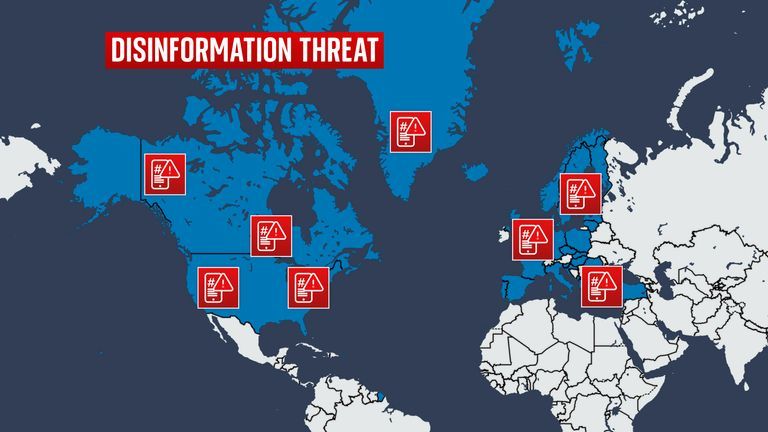NATO Warns of 'Substantial' Casualties in Event of Russia's Hybrid Warfare Attack

A top NATO official has warned that an unconventional attack by Russia against the alliance could result in "substantial" casualties, as part of its efforts to track and deter so-called hybrid warfare.
James Appathurai, NATO's deputy assistant secretary general for innovation, hybrid and cyber, raised concerns about the increasing number of suspected Russian hybrid attacks across Europe, the United States, and Canada since Russia launched its full-scale invasion of Ukraine in February 2022. These attacks have included acts of sabotage, arson, and kinetic operations such as cutting vital undersea cables.
According to Appathurai, NATO's 32 member states are already operating in a "boiling frog" situation, with suspected hybrid attacks creeping up to a volume that would have been "utterly unacceptable" five years ago. He pointed to specific examples, including Russia's attempt to kill former Russian double agent Sergei Skripal in Salisbury using a novichok chemical weapon.
"Our adversaries are trying to constrain us from acting in our territory and with our troops," Appathurai said. "And we need to tell them now that it won't work."
Appathurai warned that there is a "real prospect" of one of these attacks causing substantial numbers of casualties or significant economic damage. He also emphasized the importance of setting clear red lines for hybrid warfare, stating that NATO needs to be clearer among ourselves and with Moscow about what level of grey zone hostilities could trigger an allied response.
The alliance is currently updating its strategy to understand, deter, and counter hybrid warfare, which was last drawn up in 2015. The new policy aims to plot all suspected hybrid attacks by Russia and other hostile actors, improve deterrence, and set out clear guidelines for NATO's response to these threats.
NATO officials have stressed the need for a clearer communication of red lines with Russia, and for the alliance to be more proactive in setting boundaries to prevent escalation. The updated policy is expected to be approved at a summit in 2025.
